Now in its sixth year, the MM+M Hall of Femme honors the luminaries of the industry who have led healthcare marketing through good times and bad. In just the past year, many of these standout leaders have steered their companies through the COVID-19 pandemic. And they don’t take their responsibilities for granted: They’ve also helped usher in the next generation of women ready to take the reins. Those Women to Watch are also highlighted here, and all will be honored at the MM+M Hall of Femme virtual event on June 3. Register here.
Navigate: A – F | G – Z | Women to Watch
Nicky Battle
SVP, engagement strategy, CDM Princeton

Women are now leaving the workforce at four times the rate of men. What needs to be done to alleviate this?
This stat indicates that women are losing choice. Between the pay gap issue and domestic inequities at home, we have a sad state of affairs. To reverse this trend, we’d need a major cultural reset of expectations for women at home, at work and policies that ensure subsidies for childcare and equal compensation. In the meanwhile, we can all make a difference right now. We can hire women, compensate them equally and provide flexibility for them to better navigate home/work life.
..
..
Roshawn Blunt
Managing director of 1798, A Fingerpaint Company
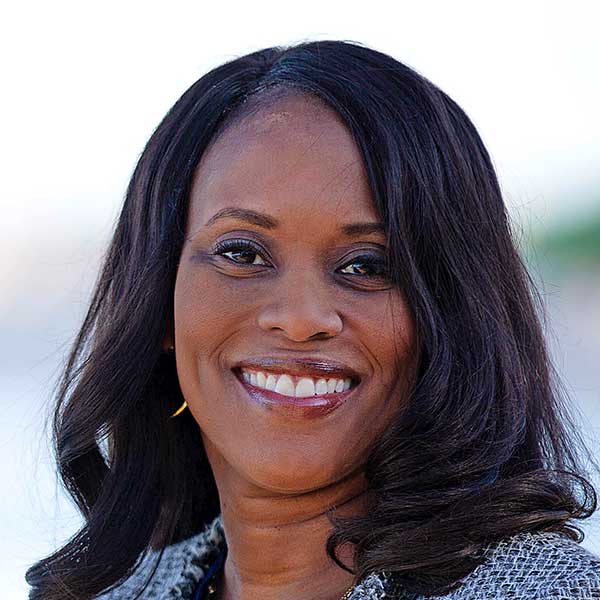
Who was your mentor and what are you now doing to send the elevator back down?
There were many times in my career when I stumbled. I found out later — sometimes much later — that the long arm of Kathryn West, a legend in the oncology advocacy world, had reached out to provide silent assistance. Sending the elevator down is critical, but what you do when you see that the elevator is “stuck” on the way back up may be far more important. While I actively seek to hire women at my company, I also actively monitor their career progression and intervene, where appropriate and necessary, to ensure that stumbles do not become derailers.
Anita Bose
Chief growth officer, Real Chemistry

What is your golden rule at work?
One of my favorite golden rules is “Don’t overthink things.” Being lighter in our approach and not taking everything so seriously allows for flexibility and fluidity. It allows us to revel in the “gray” versus being rigid in the black and white.
Cynthia Chen
President, North America Health, Reckitt

Women are now leaving the workforce at four times the rate of men. What needs to be done to alleviate this? Who was your mentor and what are you now doing to send the elevator back down?
The pandemic’s effects on women are extremely concerning. To continue progressing on the gender equality front, we must listen to what women need within the workplace and from their employers, whether that’s gender pay parity, childcare assistance, flexible work accommodations or career coaching.
Personally, as a senior leader who is also a woman of color, I’m passionate about DEI. Most recently, I became an executive sponsor of Reckitt’s ERGs, one of which is dedicated to women. Creating change on an individual level is also incredibly powerful, so I carve out time each week to make myself readily available to women and people of color looking for advice, encouragement and feedback.
Dr. Marielle Cohard-Radice
EVP, global head of development operations, research & development, Daiichi Sankyo

Who was your mentor and what are you now doing to send the elevator back down?
I have had formal and informal mentors over the years working in pharma. The best mentor I had is a peer who gave me precious advice. He told me to be “selfish.” Women leaders tend to do it all, they flex and extend themselves to the point they run the risk of burnout. Being “selfish” means that you allow yourself to identify your needs as a leader and carve out time and resources to meet these needs. I send the elevator back down by serving as a mentor and being a role model within my organization fostering diversity and inclusion.
Heather Coyle
Managing director, Triggers
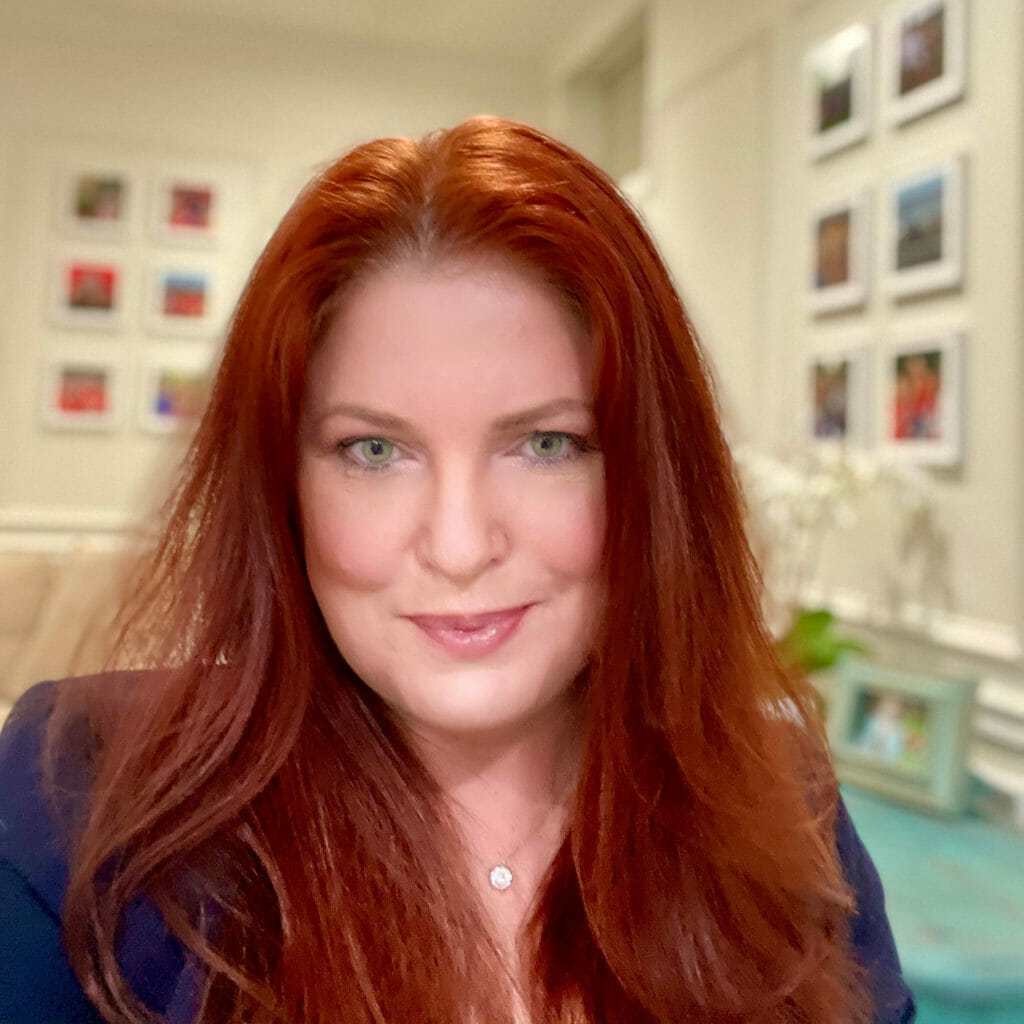
Women are now leaving the workforce at four times the rate of men. What needs to be done to alleviate this?
Women lift up economies and businesses. It’s imperative for companies to adopt a culture of empathy to help stop the burnout and set the tone that women matter to their business. Every company must adjust the norms and expectations that can cause employee stress and burnout. Because we can’t afford to lose another single woman to the She-cession.
Jill DeSimone
President, U.S. oncology, Merck

Women are now leaving the workforce at four times the rate of men. What needs to be done to alleviate this?
First, we need to recognize that the thoughts and considerations of new leaders’ careers are different than in past generations. Once we can identify these differences, and understand what motivates today’s women, we can inspire and energize them to find their voice in the workplace.
Kara Dugan
President, Razorfish Health

What are the first things you plan to do when the pandemic ends?
I became president of Razorfish Health at the pandemic’s peak, and I’m looking forward to meeting colleagues I’ve only seen on Zoom and “elbow bumping” with others I haven’t seen in ages. And while I never thought I’d say I miss O’Hare, I do miss traveling and can’t wait to take my family to visit places the kids have only seen on Netflix.
Kathy English
Chief marketing officer, Vocera

What is your golden rule at work?
Treat others with dignity and respect, communicate with empathy and most importantly, actively listen.
Erin Fitzgerald
Chief marketing officer, Sermo

How have you coped with the unique challenges of the past 12 months?
As both an executive and a mother, I have been in the same position as every woman through the pandemic — figuring out how to keep our organization moving forward while I raise my children, maintain my house and turn into a schoolteacher. In between it all, I try to make sure I take a little time for myself along the way — whether it’s going for a run or reading a book or just taking a long, hot bath while listening to a podcast.
One of the big things I learned was to stop demanding so much of myself. I always want to accomplish it all, and this experience taught me that sometimes, it’s OK to give something 80% if it means I have the resources I need for something else.
Edith Hodkinson
Chief digital officer, DMD

Women are now leaving the workforce at four times the rate of men. What needs to be done to alleviate this?
One thing the pandemic taught us is that productivity is enhanced, not reduced by a remote working environment. Companies should also consider additional benefits or financial assistance for childcare.
We need to close the gender pay gap to give families a choice on who fulfills the primary caregiver role, men are great caregivers too!
I am a huge advocate for corporate “reentry” programs designed to ensure a smooth transition for women going back to work.
Wallye Holloway
Associate managing partner, TBWA\WorldHealth

What are the first things you plan to do when the pandemic ends?
- Visit family that I have not seen in the past year
- Take a trip on a plane.
- See a concert at Jazz at Lincoln Center
- Go to the movies again
- See a performance at the Metropolitan Opera in Lincoln Center
Deborah Lotterman
Chief creative officer, Precisioneffect

How have you coped with the unique challenges of the past 12 months?
Running five miles outside, every day, very early in the morning. Even in the frigid cold. It’s remarkably clarifying and I feel so self-righteous for the rest of the day!
Abigail Mallon
SVP, strategic account management and chief compliance officer, VMS BioMarketing
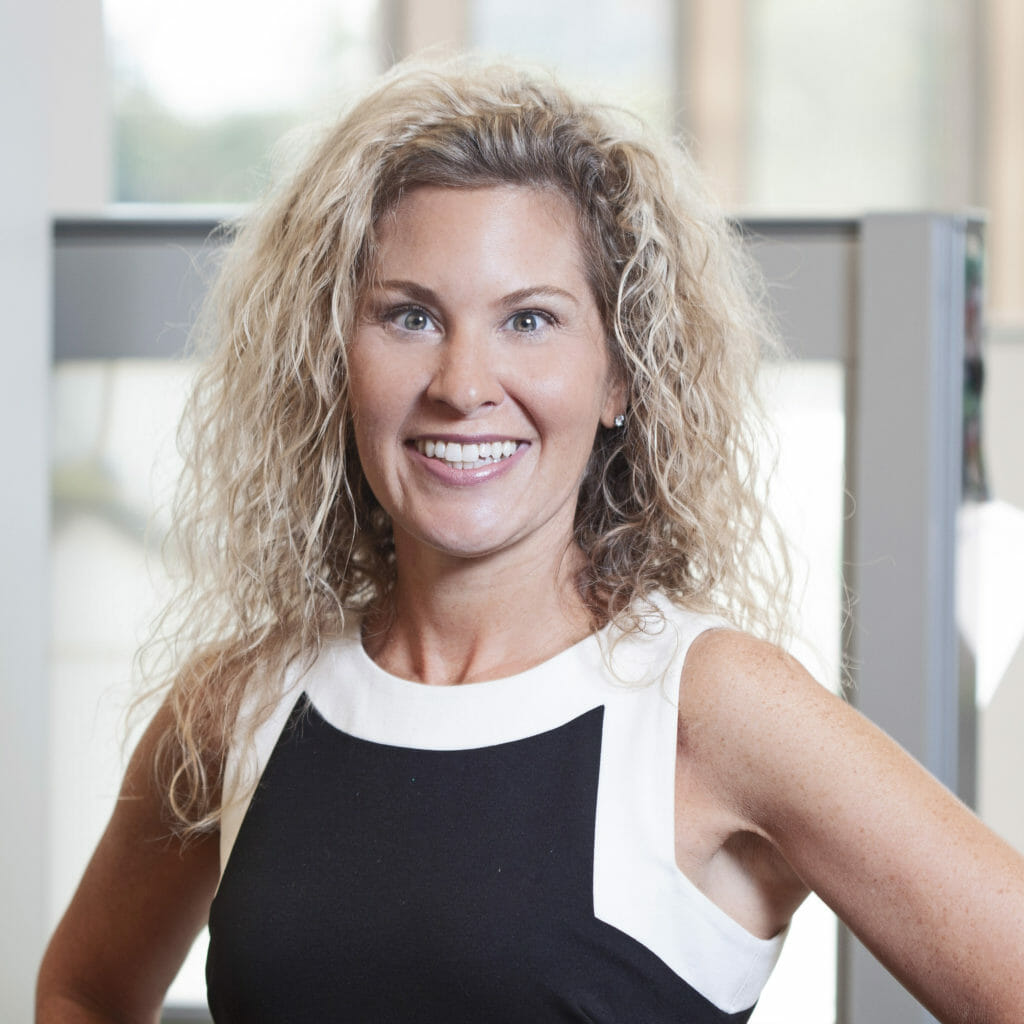
What is your golden rule at work?
“Sleep on it.” When faced with a significant decision or conflict at work, I think it’s important to pause, not make a quick decision and sleep on the decision or reaction. Things always look different the next day with a clear head.
Rachel McCready
SVP/executive creative director, Klick Health

Who was your mentor and what are you now doing to send the elevator back down?
To send the elevator back down, I stay aware of — and call out — the small biases that guide our everyday decisions. Such as our mental model of what a “leader” looks like. And more importantly, sounds like. We need to actively re-write those mental models in order to make it equally easy for anyone of any background or identity to succeed in business. The truth is, we have a lot of work to do.
Catherine Owen
SVP, major markets, Bristol Myers Squibb

What is your golden rule at work?
I have a few rules I have developed along the way. 1. Be authentic, keep perspective and enjoy the journey. 2. Never let others define your value; you own it and your destiny. 3. When you “get there,” send the elevator back down.
Maria Palasis
President and CEO, Lyra Therapeutics

What is your golden rule at work?
It’s important to think big and have a relentlessly positive attitude. I encourage everyone to be persistent and committed to the goals they set for themselves, their team and the organization.
Saundra Pelletier
Founder and CEO, Evofem Biosciences
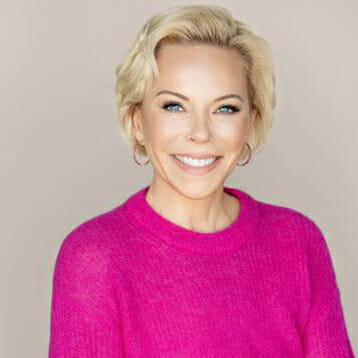
What is your golden rule at work?
I lead with two rules. Never confuse motion with action and the greatest human need is to feel significant. Results and kindness matter equally. I know that not only do you get more flies with honey, but that when people are respected they will harness constructive feedback and improve results. When people are treated with kindness, no matter what the request, they will over-deliver.
Krista Pinto
EVP, field solutions, Eversana

How have you coped with the unique challenges of the past 12 months?
I’ve tried to be kind to myself as much as possible. It’s not always easy, but it is so important. In this world, many of us have been on camera for 8-10 hours a day with few breaks. During off time, I try to enjoy my family more and stress less about the house and the little things that don’t matter as much.
Mary Ray
Cofounder and COO, MyHealthTeams

Who was your mentor and what are you now doing to send the elevator back down?
One woman who has been a role model to me is my mother, who has easily had a nine-career life as a refugee activist, realtor, restaurant owner, newspaper publisher, local TV producer, two-time Presidential appointee and more. Two mentors in my 20s were Alexandra Morehouse McReynolds, the CMO of Banner Health, and Shelly Porges, founder and managing partner of Beyond the Billion & The Billion Dollar Fund for Women.
Melinda Richter
Global head, Johnson & Johnson Innovation, JLABS
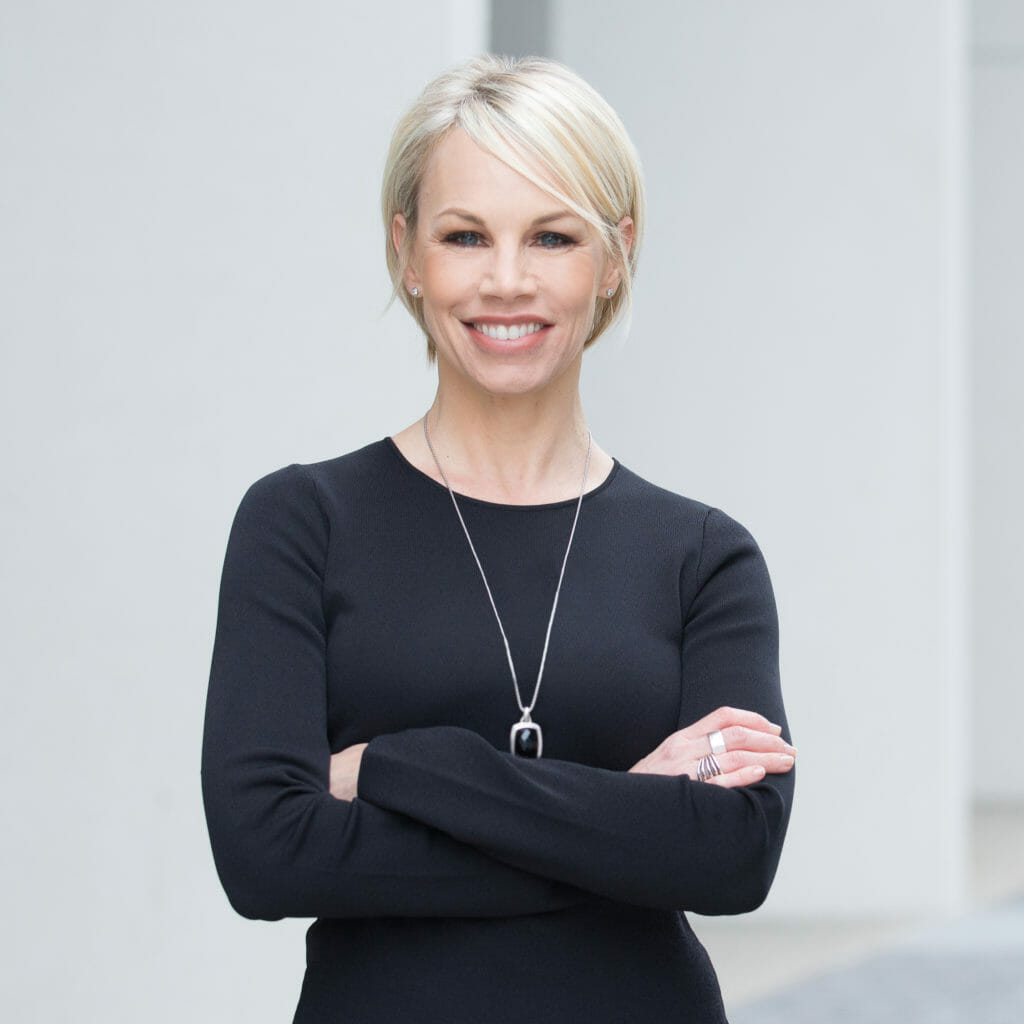
What is your golden rule at work?
Be yourself and don’t apologize for it. Society can put the burden of shame on those who don’t match the ideal image of “successful.” And yet, our unique stories build critical qualities for success. For me, growing up in poverty taught me creativity, character, resilience and discipline … it also made me hungry to strive for more.
We all have our stories; they should be told and they should be embraced.
Brenda Snow
Founder & CEO, Snow Companies

How have you coped with the unique challenges of the past 12 months?
From a business perspective, I’ve never worked harder: I was laser-focused on meeting Snow’s growth targets and preserving our culture, which it had taken 20 years to build. On a personal level, the pandemic took business travels out of the equation. This opened up a window into self-care: I started to practice Pilates at home and feel a lot stronger, flexible and balanced.
Lisa Stockman
President, diversified communications services, Syneos

Who was your mentor and what are you doing/have you done to send the elevator back down?
While I’ve had many people I’ve formally mentored, I also try to make an impact on people in everyday interactions. My hope is that they can take away something from our interaction that will help shape them as a leader. Recently, I had a staffer tell me that I made a huge impact when I replied “family comes first” to his email about missing a staff meeting due to his daughter’s recital.
Kristi Veitch
EVP, people & culture, Intouch Group
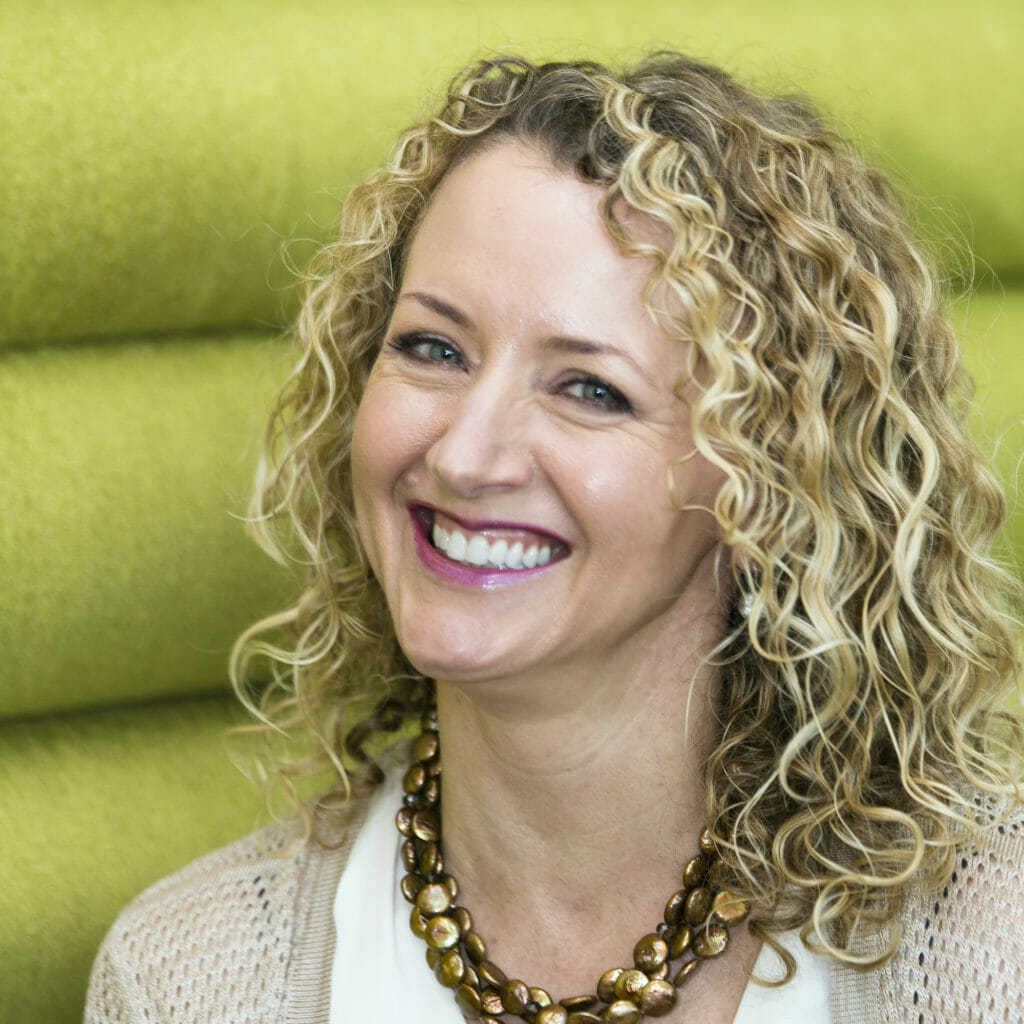
Who was your mentor and what are you now doing to send the elevator back down?
I never really had a mentor in the business world, unfortunately, and many times felt like I had to fight a lot of battles without a blueprint or support. Being in the position where I am now — as a leader in the People & Culture space, crafting and shaping our company’s policies — is one way I can contribute on a daily basis to help ensure that other women have smoother paths climbing the ranks than I did.
Women to Watch
Sally Allain
Head of JLABS @ Washington, DC – Johnson & Johnson Innovation
Hillary Bergman
Account supervisor – Wunderman Thompson Health
Jessica Botting
Director, social media – Klick Health
Alexandra Charles
VP, account group supervisor – The Lynx Group
Amber Chenevert
Group director, strategy & insights; Culture Studio lead – VMLY&R
Lindsay Danylak
VP – Spectrum Science
Genevieve Desmond
Director of brand experience and product marketing – Akili Interactive
Michelle Edwards
VP, human resources & operations – Heartbeat
Erin Fitzgerald
VP, group director, account management – Digitas Health
Katrina Sergeev Gary
Director of patient marketing & engagement – Argenx
Abenaa (Abby) Hayes
Practice leader, DEI engagement – Real Chemistry
Alison Leaf
Senior program manager – Seven Bridges
Elizabeth McShea
Director, social media – CMI Media Group
Lauren Murphy
Director, consumer marketing – Biohaven Pharmaceuticals
Katie Ramirez
VP, digital – GCI Health
Kristi Reeves-Pennington
Trelegy consumer marketing director, COPD and asthma – GSK
Kara Reheis
VP, marketing – Daiichi Sankyo
Nikki Sidi
VP, global strategic marketing, surgical – Johnson & Johnson Vision
Takae Takahashi
SVP, associate creative director – Havas Health & You / Havas Health Plus







